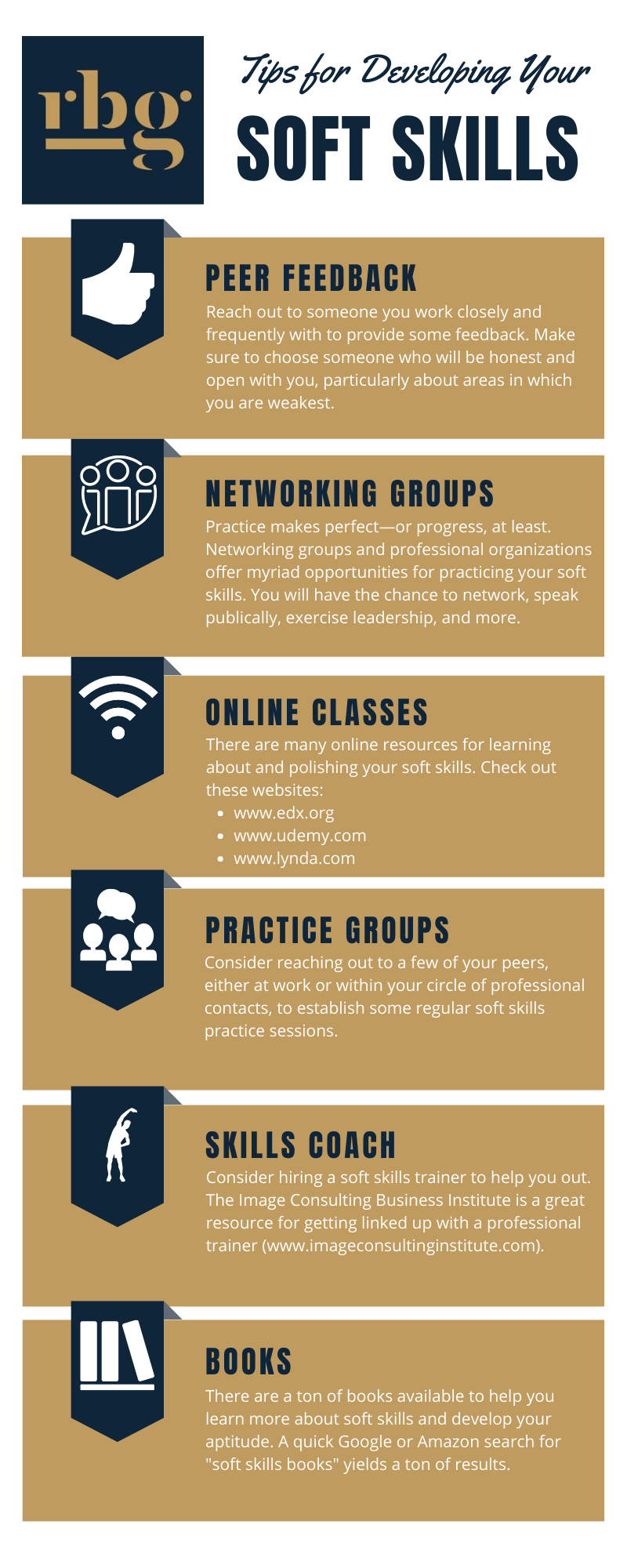Generally, when people consider skills in fields like accounting, they think primarily of technical prowess. And while hard skills are certainly very important, the need for soft skills in the accounting sector should not be written off. Today we examine various types of soft skills and offer some advice for developing and improving in this area.
What Are Soft Skills?
Soft skills are personal attributes, character traits, and other non-technical proficiencies that enable a person to interact effectively with those around them. They are harder to define and measure than technical skills, but they are very important in the workplace. Here are some examples of soft skills:
- Public speaking
- Communication
- Leadership aptitude
- Adaptability
- Critical thinking
- Delegation
- Time management
- Teamwork
- Ability to perform under pressure
- Innovation
- Listening
- Creativity
- Work ethic
- Problem solving
- Emotional intelligence
- Confidence
- Resilience
- Punctuality
You can probably see why soft skills can be helpful in the workplace. Professionals who have cultivated and developed their soft skills find it easier to create relationships and advance in their careers. When you work in an environment where soft skills are abundant, it can have a big positive impact on company culture.
Resources for Developing Soft Skills
So how can you cultivate soft skills? We suggest you start off by doing some self-reflection and self-assessment. Consider which soft skills you have an aptitude for already and which ones do not come easily to you. Once you have a better understanding of your own soft skills, pick a few that you would like to work on.
When it comes to developing your soft skills, there are a variety of options available. Consider trying out on or more of the following:
Ask for feedback from a peer – While self-evaluation is helpful, it is also beneficial to get an outsider’s perspective of your soft skills set. Consider reaching out to someone you work closely and frequently with for some feedback. Make sure to choose someone who will be honest and open with you, particularly about the areas in which you are weakest. And make sure that you prepare yourself mentally beforehand to accept their feedback with getting angry or hurt.
Join a networking group or professional organization – Practice makes perfect—or progress, at least. Groups such as these offer myriad opportunities for practicing your soft skills. You will certainly have the chance to network and likely gain access to opportunities for public speaking, leadership, and more.
Sign up for an online class – There are many online resources for learning about and polishing your soft skills. Here are some websites to get you started:
- edx.org – “Learn effective soft skills with free online courses in leadership, communication, management and more. Build the soft skills you need to stand out and take your career to the next level.”
- Udemy – Check out their bestselling class, “Soft Skills: The 11 Essential Career Soft Skills”
- Lynda.com – The LinkedIn Learning website offers a wide variety of video courses, including a learning path for mastering professional soft skills.
Form a practice group – Consider reaching out to a few of your peers, either at work or within your circle of professional contacts, to establish some regular soft skills practice. Try meeting weekly or monthly, with each meeting focused on improving a different soft skill.
Hire a skills coach – As an alternative to forming a practice group, consider hiring a soft skills trainer to help you out. The Image Consulting Business Institute is a great resource for getting linked up with a professional trainer.
Read a book on the topic – There are a ton of books available to help you learn more about soft skills and develop your aptitude. Here are a few best sellers to consider:
- The Hard Truth About Soft Skills: Workplace Lessons Smart People Wish They’d Learned Sooner by Peggy Klaus
- 10 Things Employers Expect Their Employees to Know: A Soft Skills Training Workbook by Frederick Wentz
- How NASA Builds Teams: Mission Critical Soft Skills for Scientists, Engineers, and Project Teams by Charles Pellerin
- Principles: Life and Work by Ray Dalio


Add a Comment